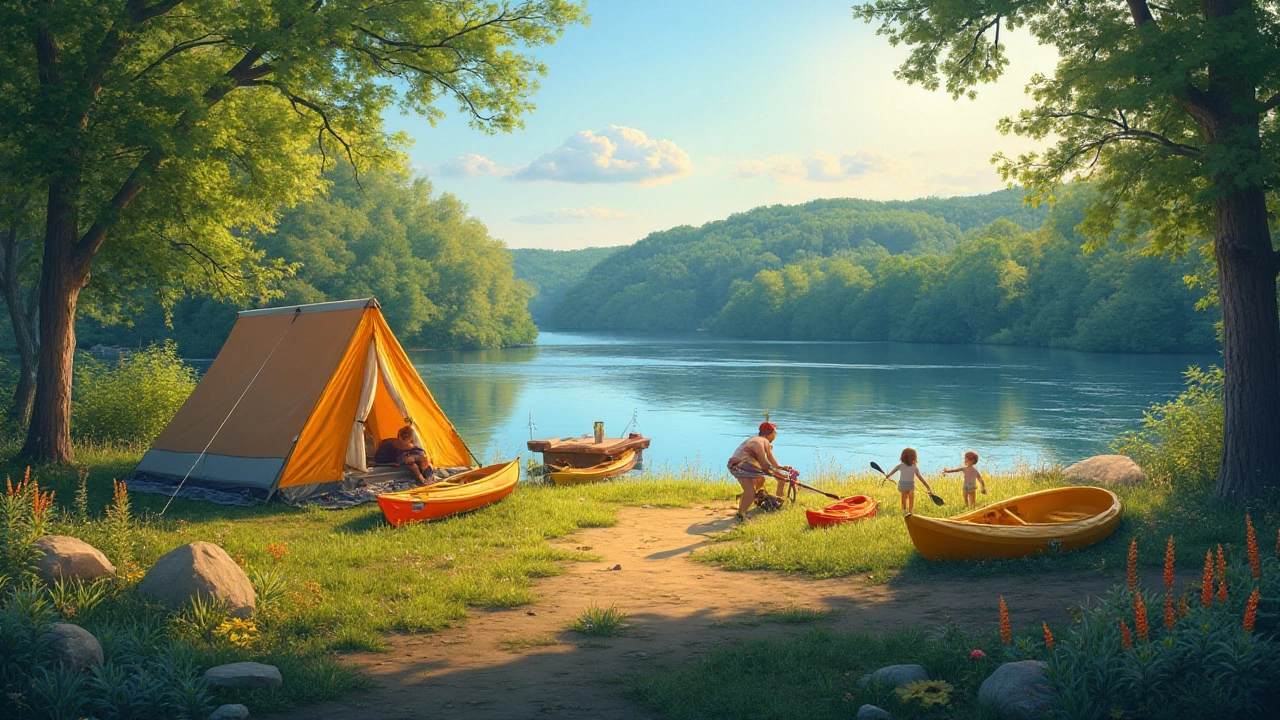Lake Campsites – Find the Best Spots for Your Motorhome Adventure
If you love waking up to water, a lake campsite is the perfect base. A calm lake gives you fresh air, easy fishing, and gorgeous sunsets, all within a short drive from your motorhome. In the UK there are dozens of well‑maintained sites that cater to both tent‑campers and motorhome owners. Below you’ll find the most useful advice to pick a spot, stay safe, and make the most of your lakeside holiday.
Why Choose a Lake Campsite?
First, a lake gives you instant recreation. You can launch a kayak, go paddle‑boarding, or simply dip your toes without leaving the site. Second, many lake campsites sit in nature reserves or national parks, so you get tidy facilities, rubbish collection, and often electric hookups for your motorhome. Third, the scenery is a natural mood booster – morning mist on the water, birdsong at dawn, and starry nights reflected off the surface create memorable moments you can’t get from a roadside pitch.
How to Pick the Right Lake Campsite
Start by checking the size of the lake. Larger lakes usually have multiple access points, which means less crowding and more room for water sports. Look for sites that list power connections, fresh water, and waste disposal – these make motorhome life hassle‑free. Read recent reviews; campers often mention if a site is noisy, if the water is polluted, or if wildlife is a problem.
Pay attention to the campsite layout. A good lake site will have pitches set back from the water’s edge, protecting you from damp ground and giving you privacy. Some sites offer raised platforms or hard‑standing spots, which are ideal for motorhomes that need a level surface for stabilisers.
Consider the surrounding activities. If you plan to hike, choose a campsite near trailheads. If you want family‑friendly fun, look for sites with playgrounds, picnic areas, and easy shoreline walks. Many UK lake campsites near the Lake District, the Peak District, and Wales combine all these features.
Season matters, too. Summer can bring crowds, especially at popular spots like Windermere or Ullswater. Booking early or opting for a lesser‑known lake such as Llyn Padarn in Snowdonia can give you peace and lower fees.
Finally, check the rules. Some sites ban fires, limit pets, or require a permit for watercraft. Knowing the restrictions ahead of time saves you from fines and disappointment.
Our tag page also includes posts that help you plan a lake adventure. For example, the guide on "Camping in National Parks UK" explains how to get permission for lakeside pitches in protected areas, while "Understanding the Rule of Three Camping" gives you safety basics you’ll need when you’re out on the water.
When you arrive, set up your motorhome on the provided level area, hook up water and electricity, and keep a small kit with extra ropes, a waterproof mat, and insect repellent. A quick walk around the site helps you spot the best spot for a fire pit (if allowed) or a shaded area for meals.
Enjoy the lake! Early morning is the best time for fishing, and evenings are perfect for a gentle paddle and a sunset view. If you’re traveling with kids, a short walk along the shore can turn into a nature scavenger hunt – look for water beetles, dragonflies, and different leaf shapes.
Remember to leave no trace. Pack out everything you bring in, use designated bins, and avoid disturbing wildlife. A clean campsite keeps the lake healthy and ensures the next camper enjoys the same pristine setting.
With these tips, you’re ready to book a lake campsite that matches your motorhome size, activity level, and budget. Pack your gear, pull up to the water’s edge, and let the lake set the pace for a relaxed, unforgettable road trip.
-
 VIEW POST
VIEW POSTUltimate Guide to Camping Durations in Virginia's Lakeside Retreats
Jan, 31 2025|0 CommentsDiscover how long you can stay at various campgrounds in Virginia, especially those nestled by serene lakesides. This guide explores the rules and regulations that govern your stay, offering insights into popular camping spots. Travel tips and campground policies are highlighted to help campers make the most of their adventure. Uncover the hidden gems of Virginia’s lakeside retreats and plan your prolonged visit without a hitch.